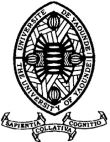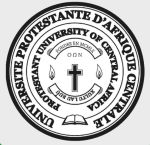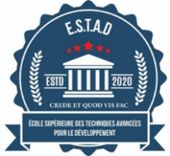Telecardiology and Savings of Distance, Time and Costs in the Management of Cardiovascular Diseases and its Perception of Users in Ivory Coast
DOI :
https://doi.org/10.5281/hra.v2i1.5112Mots-clés :
Télécardiologie, économies, distance, temps, Couts, BouakéRésumé
RÉSUMÉ
Introduction. La Télémédecine est proposée pour la réduction des disparités dans l’offre des soins. L’objectif de cette étude était d’évaluer son apport à travers la Télécardiologie dans l’économie de distance, de temps et de couts pour les explorations cardiologiques et d’apprécier la satisfaction des bénéficiaires de ce modèle médical en Côte d’Ivoire. Méthodologie. Il s’agissait d’une étude rétrospective à visée descriptive réalisée du 30 Juin 2022 au 30 Septembre 2022. Elle a inclut des ECG télétransmis à partir de dix-neuf Centres de Santé au Centre d’Expertise logé au CHU de Bouaké dans le cadre de la deuxième phase du Projet de Télécardiologie. Résultats. Sur cette période nous avons 529 ECG ont été réalisés provenant pour la plupart des régions du Nord (28,92%, n=153) et du Centre (47,83%, n=253). L’âge moyen des sujets était de 56,00 ± 16,18 ans. Les motifs de réalisation des téléECG étaient dominés par le bilan de retentissement de l’Hypertension artérielle (50%, n=165) et étiologique de la dyspnée (15,68%, n=83). Ce processus avait permis d’éviter aux requérants 108568 kilomètres avec une moyenne de 205 km. Un total de 26365 minutes avec une moyenne de 1387±135 minutes correspondant à 23,11 heures ont été évitées. Une économie d’environ 5.733.500 XOF (8753 EURO) a été obtenue soit 10900 XOF par personne. Un taux satisfaction de 74% (n=128) du processus a été obtenu. Conclusion. La Télécardiologie est rentable dans la réduction des contraintes de distances, de temps et de couts de prise en charge des affections cardiovasculaires suscitant un taux de satisfaction considérable.
ABSTRACT
Introduction. Telemedicine is proposed for reducing disparities in healthcare provision. The objective of this study was to evaluate its contribution through Telecardiology in terms of distance, time, and cost savings for cardiac explorations, and to assess the satisfaction of beneficiaries of this medical model in Côte d'Ivoire. Methodology. This was a retrospective descriptive study conducted from June 30, 2022, to September 30, 2022. It included ECGs transmitted remotely from nineteen Health Centers to the Expertise Center located at Bouaké University Hospital as part of the second phase of the Telecardiology Project. Results. During this period, 529 ECGs were performed, mostly from the Northern (28.92%, n=153) and Central (47.83%, n=253) regions. The average age of the subjects was 56.00 ± 16.18 years. The reasons for performing tele-ECGs were mainly the assessment of the impact of hypertension (50%, n=165) and the etiology of dyspnea (15.68%, n=83). This process saved the applicants a total of 108,568 kilometers with an average of 205 km. A total of 26,365 minutes with an average of 1,387 ± 135 minutes, corresponding to 23.11 hours, were avoided. An estimated savings of approximately 5,733,500 XOF (8,753 EURO) was achieved, equivalent to 10,900 XOF per person. A satisfaction rate of 74% (n=128) with the process was obtained. Conclusion. Telecardiology is cost-effective in reducing the constraints of distance, time, and costs associated with the management of cardiovascular conditions, resulting in a considerable satisfaction rate.
Téléchargements
Publié-e
Comment citer
Numéro
Rubrique
Licence
Authors who publish with this journal agree to the following terms:
- Authors retain copyright and grant the journal right of first publication with the work simultaneously licensed under a Creative Commons Attribution License CC BY-NC-ND 4.0 that allows others to share the work with an acknowledgement of the work's authorship and initial publication in this journal.
- Authors are able to enter into separate, additional contractual arrangements for the non-exclusive distribution of the journal's published version of the work (e.g., post it to an institutional repository or publish it in a book), with an acknowledgement of its initial publication in this journal.
- Authors are permitted and encouraged to post their work online (e.g., in institutional repositories or on their website) prior to and during the submission process, as it can lead to productive exchanges, as well as earlier and greater citation of published work










